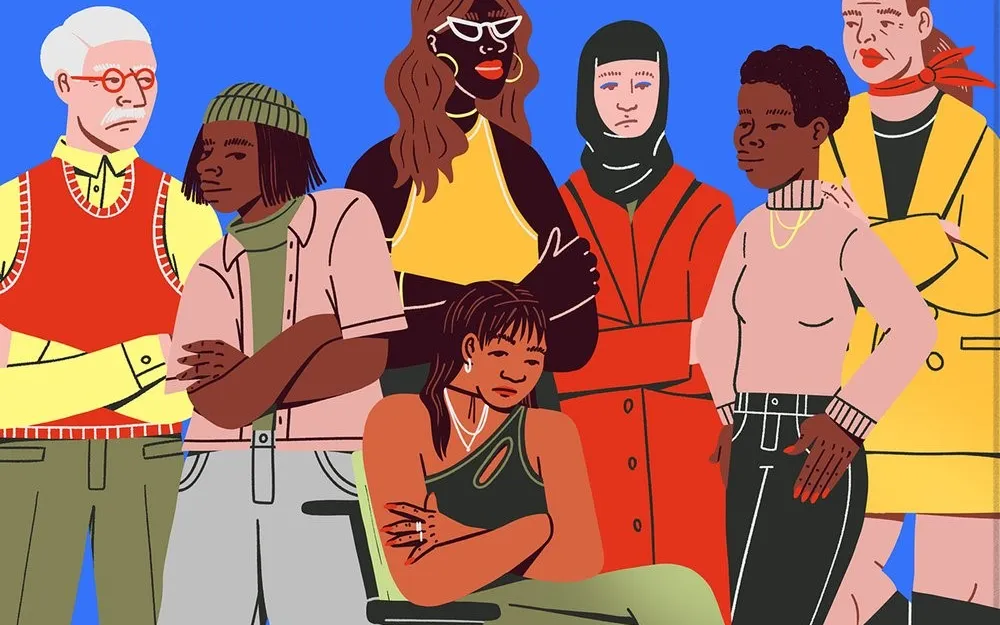
An international campaign, through an European Citizens’ Initiative (ECI), demand the European Commission to introduce legislation requiring that brands and retailers in the garment industry conduct due diligence in their supply chain to ensure workers are paid living wages.
Before buying a new piece of clothing have you ever looked at the different tags sewn in? Among all the various information included it will indicate where it has been produced, which most likely will be at the other side of the world, for instance China or Bangladesh. Therefore this new shirt you are about to buy, will not only have travelled thousands of kilometres before it reaches its destination in Europe but it will also have passed through many different hands: from the production of raw materials - cultivation of the cotton or other natural fibres, the processing of synthetic fibres from oil, production of yarn – cutting, weaving, dying, sewing, finishing work, intermediaries, retail stores, etc. Simply looking at the amount of people and steps it took to make such a shirt, the question is how can it only cost a couple of Euros? The answer, though complex, can be boiled down to exploitation.
Since multinational corporations began outsourcing the clothing production to less developed economies in the 1980s they have aimed to increase profits through low wages and working in countries with poor labour standards and lax environmental regulations. Outsourcing, subcontracting, work from home, temporary/casual workers, and unsafe working conditions are normal practices in the garment industry, a situation that affects mainly women, as they comprise over 80% of the workforce. Women garment workers face abuse, harassment, violence, exposure to toxic chemicals, forced overtime and even forced labour, and despite them working in these conditions they still do not earn enough money to have a decent living, which in turn can further increase the poverty cycle, including child labour, malnutrition, or lack of education.
According to the International Labour Organization (ILO), more than 630 million workers worldwide — almost 20 per cent of all those employed — did not earn enough to lift themselves and their families out of extreme or moderate poverty in 2019, a situation that has only gotten worse with the effects of the COVID-19 pandemic. Though poverty is a complex issue, a living income could help break the cycle of poverty, contribute to the sustainable development of the communities where people work and encourage equality in societies. A living income should cover a decent standard of living for the worker and her or his family: granting access to food, water, housing, education, health care, transportation, clothing, and other essential needs including provision for unexpected events.
The garment industry is one of the main sectors where living wages are a necessity. Informal employment practices exclude workers from national labour standards and benefits such as health insurance, pensions or paid maternity leave. While working in factories is no guarantee of safety conditions, as was visible in the Rana Plaza garment factory complex in Dhaka, Bangladesh, which collapsed and killed 1,134 workers, and injured thousands more, nearly 10 years ago.
The complexity of the garment supply chain with many layers of subcontracting and the lack of transparency enables and foster these dangerous and exploitative working conditions, with a high negative environmental impact, while making responsibility and accountability on global big corporations and brands very difficult. Legislation that requires due diligence on living wages across the supply chain, no matter where productions is carried out, could help put an end to this situation.
Good Clothes Fair Pay is a European Citizens’ Initiative (ECI), an international campaign to petition the European Commission to introduce legislation requiring that brands and retailers in the garment and footwear sector conduct due diligence in their supply chain to ensure workers are paid living wages. This petition wants companies to be required by law to conduct research throughout their entire supply chain to identify risks that would prevent workers from earning a living wage; to make concrete plans on how to mitigate those risks; to follow fair purchasing practices; and to be open and transparent about their production locations, the number of employees and their entry-level salaries.
For the European Commission to propose a new law on living wages in the garment and footwear sector we need 1 million signatures across the EU, with only 100.000 we are still a long way to go. EU citizens spend around 5% of their total consumption expenditure on clothing and footwear, more than 12kgs of new clothing per year per person (the amount of clothes bought in the EU per person has increased by 40 % in just a few decades). Thus clothing is a matter that affects us all, and so should the lives and livelihoods of the people producing them.



Add new comment